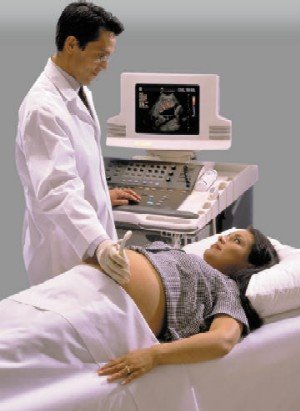| |
 |
|







|
|
|
Ultrasound (US) has long been recognized as a powerful tool for use in
the diagnosis and evaluation of many clinical entities. Over the past
decade, as higher quality, less expensive scanners were developed, US
has proliferated throughout various specialties. US is no longer limited
to radiology but is being utilized by at least 8 different specialties.
One specialty which has contributed new research regarding ultrasound's
multiple clinical applications is Emergency Medicine. The attraction of
immediate bedside sonographic examinations in the evaluation of specific
emergent complaints makes it an ideal tool for the emergency specialist.
The social and economic pressures to triage, diagnose and rapidly
treat patients, have fueled ultrasound's use as a primary screening tool
in the Emergency Department (ED). Most institutions now utilizing
emergency screening ultrasounds report faster turn around times and more
expedient diagnosis of potential life-threatening emergencies such as
internal hemorrhage following blunt trauma, abdominal emergencies,
ectopic pregnancy, pericardial tamponade, and aortic aneurysms. One
recent study found that with the use of emergency physician-performed
pelvic ultrasound length of stay was decreased in the emergency
department by a median of 120 minutes. In response to this
demand, most emergency medicine residencies now train their residents in
emergency screening ultrasound as part of their standard curriculum.
This number is expected to climb to near 100% over the next several
years as more programs gain hospital acceptance. The individual
endorsement statements from both the American College of Emergency
Physicians and the Society for Academic Emergency Medicine continue to
support these advancements. |
|
|
|
 |
|
|
| |
| |
|
|
|
|